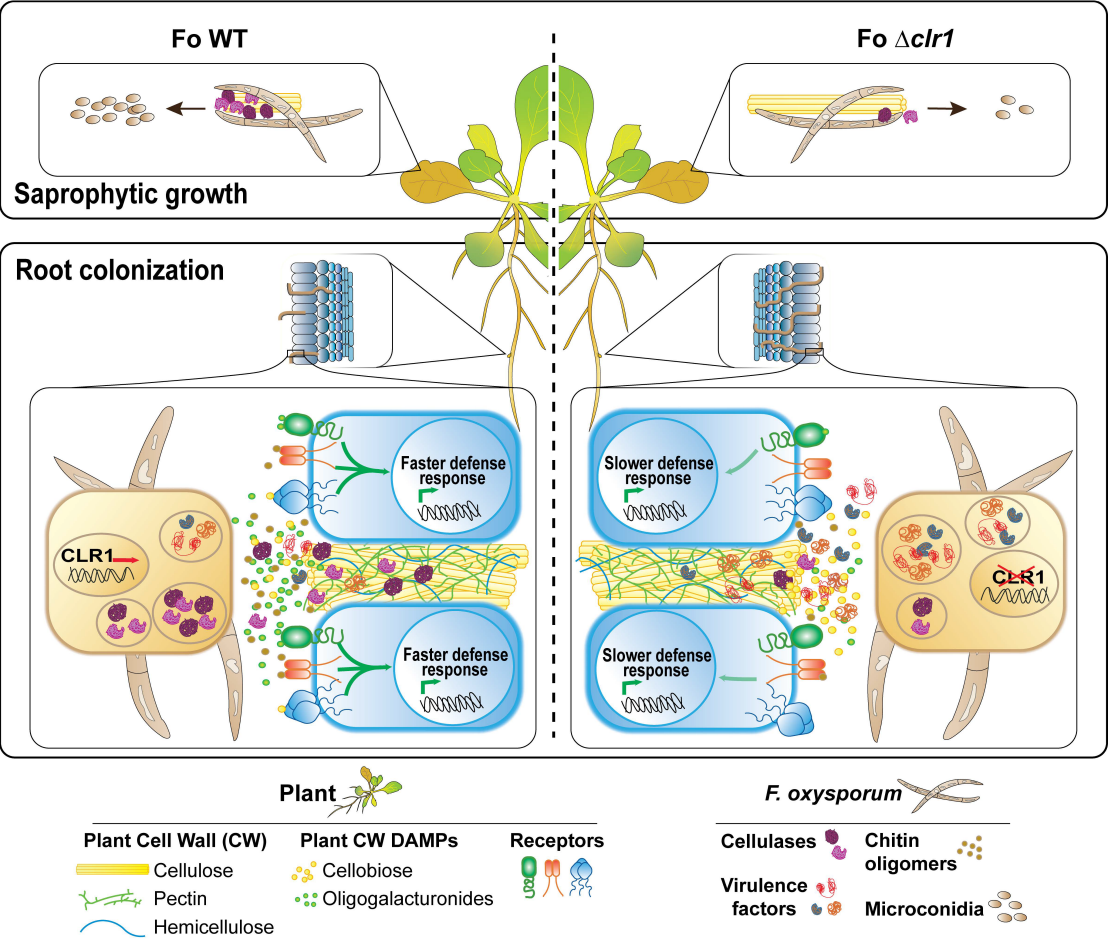Impairment of cellulose degradation machinery enhances Fusarium oxysporum virulence but limits its reproductive fitness
A recent "Science Advances" paper led by Francisco Gámez-Arjona from the Sánchez-Rodríguez group (IMPB) demonstrates that, unexpectedly, cellulose degradation is not vital for fungal pathogen’s infection, which holds implications for understanding and controlling fungal diseases.

Plant cell walls are formidable barriers to infection by fungal pathogens, and crystalline cellulose has long been regarded as the strongest component of these walls. Gámez-Arjona et al. from the Institute of Molecular Plant Biology (IMPB) employ, to surprising effect, a fungal plant pathogen, Fusarium oxysporum, with a mutation in an evolutionarily conserved master regulator of cellulases, CLR1. This mutant is not compromised in virulence during early infection. Rather, its virulence is enhanced due to compensatory induction of other virulence factors and subversion of plant immune responses. However, the mutant is compromised during the later stages of growth and reproduction because of its inability to metabolize cellulose as a carbon source from dead plant material.
The study shows that CLR1 is highly conserved among ascomycetes because it is vital for saprophytic survival in natural environments. Evolutionary pressure thus makes the use of cellulases imperative for successful completion of the pathogen’s life cycle. These findings enhance our understanding of the function of plant CW degradation on the outcome of host-microbe interactions and reveal an unexpected role of cellulose degradation in a pathogen's reproductive success.
Link to the paper in external page Science Advances